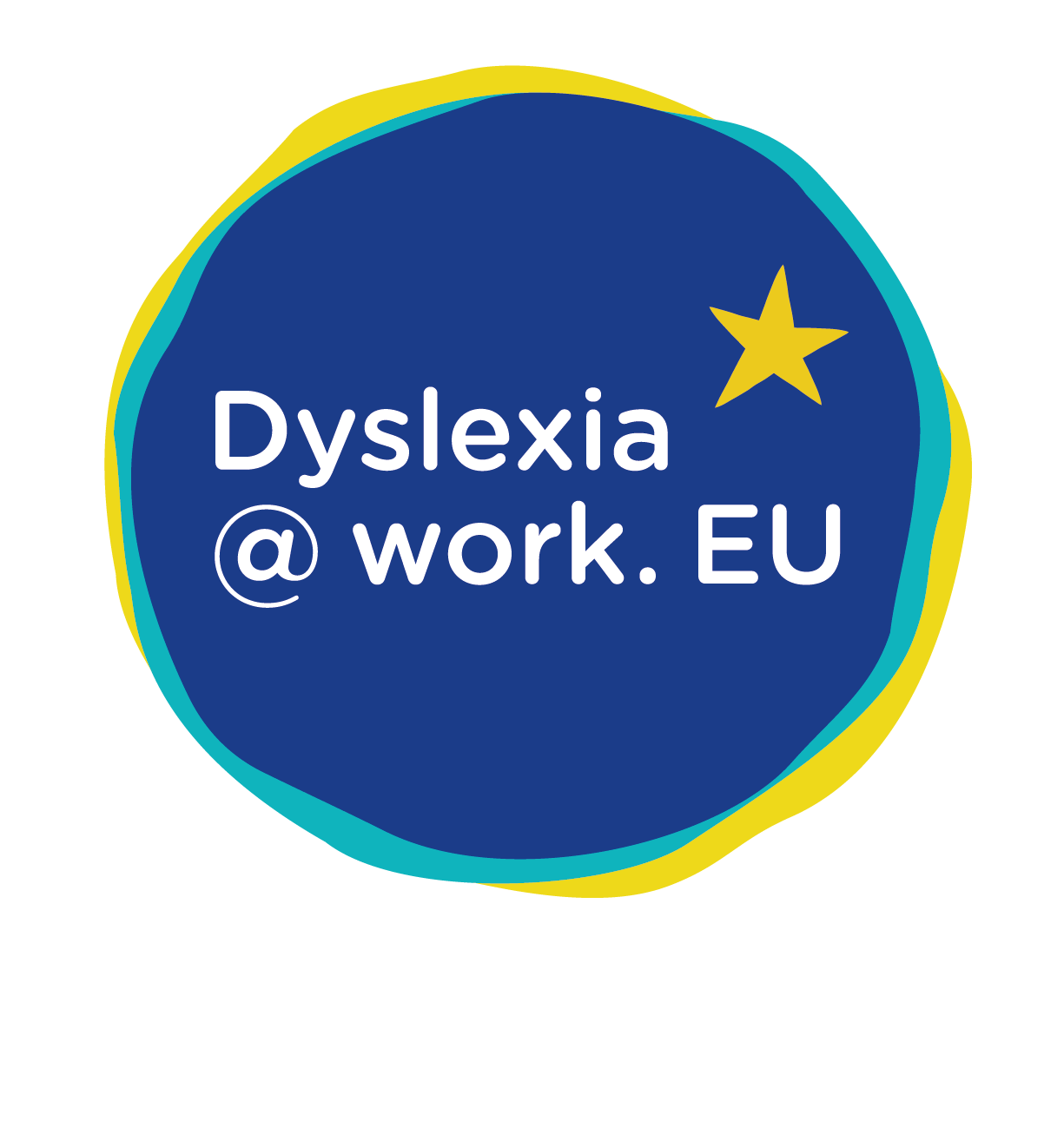Dyslexia@Work is an Erasmus+ KA2 project (no. 2019-1-IT01-KA202-007433) which aims to increase access to employment for people with dyslexia. In particular, the aim is to implement a series of actions to improve the skills and professional development of the professional figures in charge (guidance consultants, specialists in the management and training of human resources in companies, operators of public employment services and individuals) on the subject of dyslexia and inclusion in the world of work.
According to substantial scientific estimates conducted by the European Dyslexia Association (EDA), European citizens with dyslexia are between 3% and 12% of the population, with significant differences between countries but falling within this range. Dyslexia is the most widespread specific learning disorder, which makes it difficult to acquire and use reading, spelling and writing skills and other cultural skills related to communication.
While awareness of dyslexia is reasonable good in the educational system, even if in a heterogeneous way at European level, the theme of the inclusion of dyslexic young people and adults in the workplace is now emerging in an important way.
Project Objective
The project aims to achieve a dual objective: on the one hand to identify a set of good practices, methodologies and tools that allow companies, recruiters, public and private employment services, even in the presence of specific difficulties such as dyslexia, to being able to appropriately assess the abilities and talent of a dyslexic candidate; and on the other hand, provide opportunities for dyslexic adults to approach and calmly face the research and selection phases, job placement and professional growth, minimizing the fatigue and discomforts that dyslexia entails.
The reference target of the project is made up of professional operators working in the field of training and job placement (from counsellors to trainers, from employment service workers to recruitment processionals and human resource managers in the company).
Project Phases
The following are the different phases in which the project is divided:
- Comparative analysis: in this phase, each European partner undertakes to identify in its own country a series of specific elements, in particular on the reference legislation on the subject of dyslexia and work, on the organization of public and private employment services, on the modalities of recruitment and selection of personnel, and finally on the analysis of some specific situations (such as the modalities of the examination of the driving license, the modalities of the examinations for access to the Professional Associations, the selection procedures in the public competitions).
- Action research: In this phase, a team of researchers will concentrate on preparing a semi-structured interview to be addressed to the operators / professionals who work in various ways in order to detect knowledge and specific skills in the field of dyslexia and the market of work. To this end, at least 100 structured interviews are scheduled for sector operators in the various countries involved in the project.
- Creation of Guidelines and Operating Manual. Central phase of the project, the result is the production of Guidelines and contextual Operational Manual which will have the objective of providing operators (guidance counsellors, recruiters, recruiters, public institution operators, etc.) with the appropriate tools to identify and enhance the real potentiality, without denying the difficulties, of dyslexic workers in their insertion into the working world, thus seeking to facilitate and make the orientation paths and selection phases more effective.
The main expected result is therefore to start from this and other experiences developed in different territorial contexts to arrive at the realization of a “model of intervention” related to services for work, work placement and training in the workplace. This project therefore has a win-win approach, where all parties get benefits:
- Dyslexic workers (and job seekers) who will be selected and evaluated in a more equitable and respectful manner;
- Operators of job placement (from counsellors to recruiters, from human resources departments of companies to public service operators) who will have greater skills to be able to carry out their work in the best possible way;
- Companies that will have workers better integrated into the workforce and therefore more productive;
- Society in general that takes advantage of the increased possibility that more people can be correctly inserted into the world of work.
